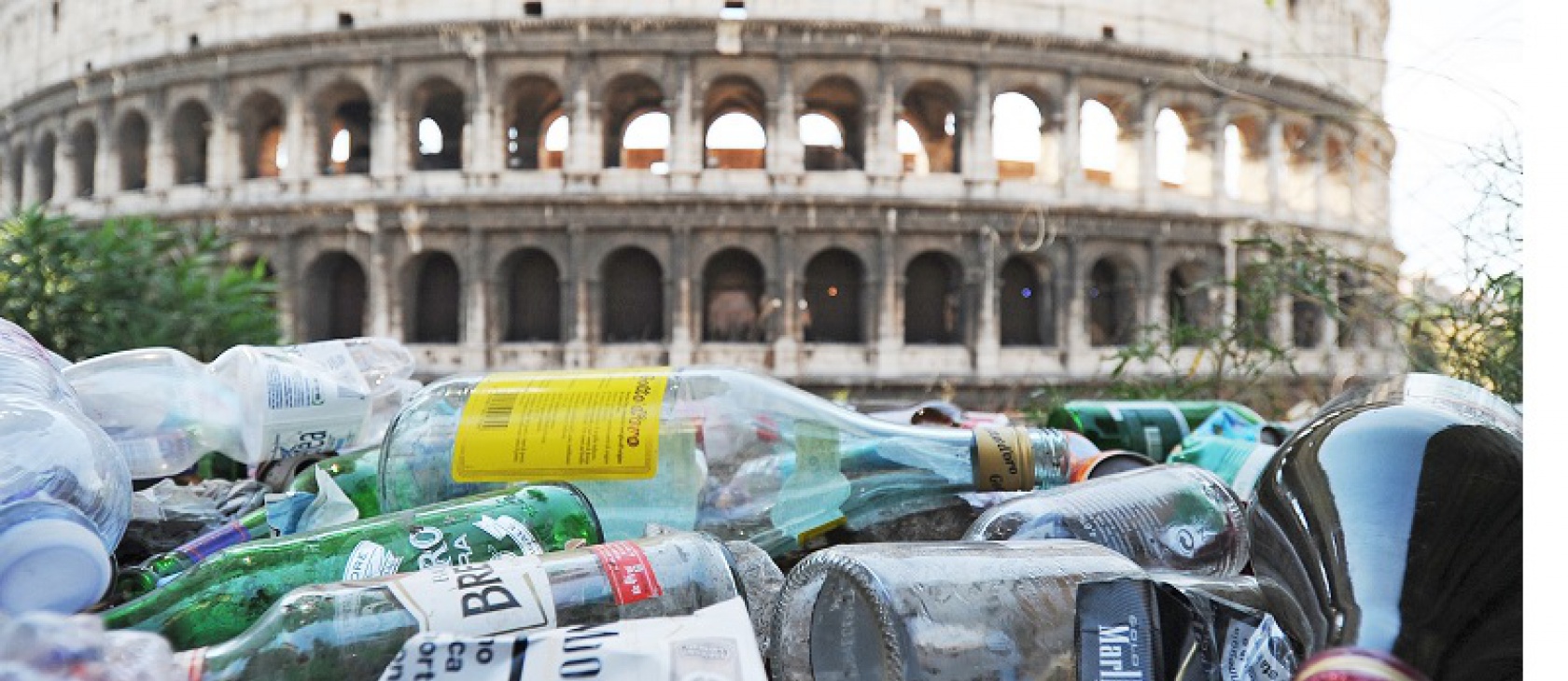Regular readers of this letter are already familiar with Rome’s degraded living conditions as chronicled by the Roma fa schifo website. The British press, which seems to take perverse joy in detailing Italian misery, recently ran another piece doing so, this time in the left-wing Guardian. Ideology is no barrier when it comes to recounting the troubles of the Five Star Movement mayor Virginia Raggi.
Much has been made of the unusual mix of right and left populists in Italy’s national coalition government, united primarily in its opposition to establishment parties such as the Partito Democratico and Forza Italia. The populists tapped into the general discontent Italians have towards the political class regardless of ideology, something entirely sensible since there is nothing partisan about fixing potholes and collecting the garbage.
In a sensible world, the same could also be said about fighting crime, growing the economy and controlling the borders. We are reminded on a daily basis, however, the political world is anything but reasonable. Trying to balance competing interests and realize the common good of society appears to be a fool’s errand. A rational person is tempted to prefer authoritarianism or anarchy to the messiness of multi-party liberal democracy.
This temptation to flee politics provides, at best, temporary relief. (I can speak from personal experience, having stopped watching political talk shows and finding myself in a much better place!) Private life appears more tranquil and comfortable, until public disorder arrives at the door. At its worst, political neglect only worsens the corruption of the elites and leads to an exaggerated populist backlash, which makes finding actual solutions to political problems much harder to realize.
Religious leaders in modern democratic societies are especially prone to neglect politics until it’s too late to do much about it. This is partly a result of the limitation of government to the protection of rights, not the “salvation of souls” that John Locke thought was the concern of each individual. The distinction between public and private life mirrors the distinction between state and society.
Such distinctions are generally sound ones to make; Jesus Christ Himself distinguishes between God and Caesar, after all. When taken too far, such separation can lead to what Fr. Richard John Neuhaus called “the naked public square,” relegating religious concerns to the purely private and largely individual realm. Over time, religious institutions such as the Catholic Church are reduced to one of many interest groups – and sometimes not even that, due to the threat of losing their tax-exempt status in countries such as the United States.
Of course, the alternative of established or state religions presents its own set of problems, not the least of which is aligning religion too closely with the political regime at the expense of its evangelical mission. The utter irrelevance of established Protestant Churches in northern Europe should suffice to disabuse us of any romantic notions of throne and altar. The optimal solution is somewhere between the two extremes of complete alliance and strict separation, with allowances made for changing circumstances and realities.
No sane person living in the West can say that Christianity is a religion of the elites; the question is whether it is a religion of the people to any significant degree. Both social-justice and pro-life Christians, at least among the most active and engaged, claim to be on the side of the people. The problem is neither side recognizes the other as part of the same people.
Despite our desire to separate (if not avoid altogether) religion and politics, both are highly and similarly polarized. Since I spend a lot of time around religious leaders (a.k.a. elites), I realize I operate in a certain type of bubble, missing the more popular, less ideological side of the Church, one that has also been disappointed and failed by the institution in one way or another. The same question arises in religion as in politics: What can populism provide the people?
Asking the people what it wants at any given moment in time assumes a few things that are difficult for any leader to discern. First, that there is a stable, identifiable group of “people” who share something in common and are more than a simple aggregate of individuals. Somethings in common may be blood or ethnicity, a place, or a belief. Who, then, speaks for the minorities, those who are by definition unpopular? Second, what happens when the people want incompatible things, such as liberty and equality? And what happens when the majority want something bad, such as denying rights to the minority or invading a neighboring people? Can a populist leader legitimately ignore the ill-considered will of the people? Conversely, couldn’t a populist leader effectively manipulate the people for nefarious purposes?
These and other difficulties have proven to be the downfall of many republican governments, leading to the consolidation of power in fewer hands. These difficulties also led to the experiment of liberal democracy that some on the right and left are now questioning. Further questioning should take us back to Aristotle’s discussion of who rules, how and why. We can all agree that our political and religious elites have failed us. Figuring out what to do next will require new, better elites, but elites all the same.
(Photo credit: MZeta/Shutterstock.com)



